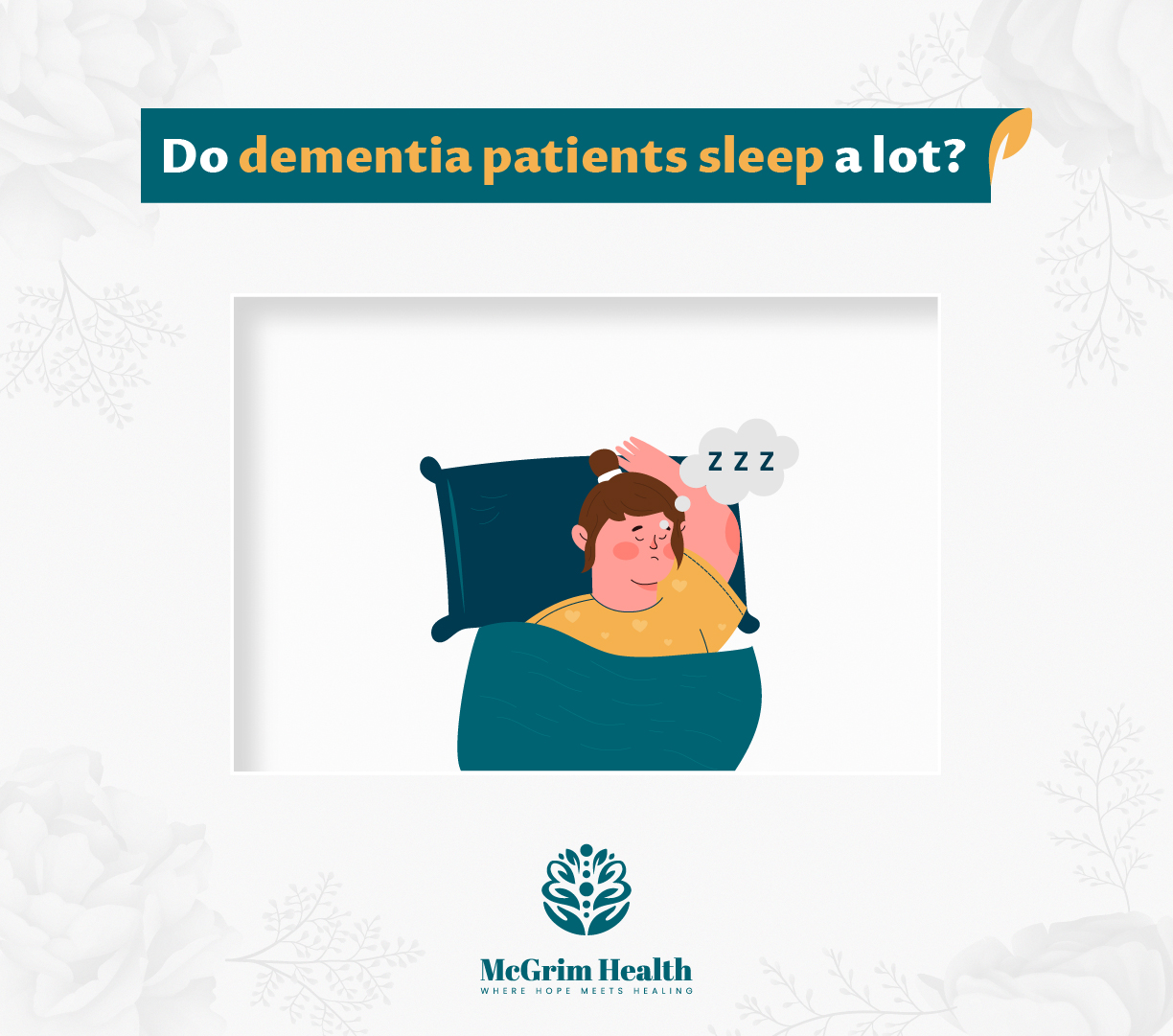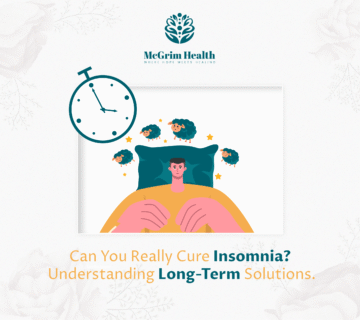Dementia is a complex illness that touches many lives across the globe. A question many grapple with while caring for a dementia patient is, “Do dementia patients sleep a lot?” This blog post will dive into how dementia and sleep are linked, offering insights for caregivers.
Do Dementia Patients Sleep a Lot?
Quite often, yes. This can even worry those caring for them. The increase in sleep time for dementia patients largely roots back to the brain changes caused by the disease, side effects of medication, and lessened physical activity.
As dementia advances, the brain undergoes major shifts that can throw off natural sleep patterns and body’s internal clock.
Sleep Changes in Dementia
Age can shift sleep habits, but such changes can be more noticeable in people with dementia. It’s vital to grasp these changes in order to manage symptoms and get the proper care.
Common Sleep Disturbances in Dementia
A person with dementia might face various sleep issues, including:
- Difficulty Falling Asleep: It isn’t uncommon for dementia patients to battle with nighttime sleep. It could be due to reasons like anxiety, being restive, or an altered body clock.
- Frequent Waking: Frequent nightly awakenings might be the part of a dementia patient’s life. Constant interruptions to sleep can result in feeling exhausted.
- Daytime Sleepiness: Sleep that’s low in quality can cause dementia patients to sleep during the day. Quick relief is often found in this, but it may negatively impact sleep at night.
Causes of Increased Sleep in Dementia Patients
Dementia patients might sleep more for various reasons:
- Brain Changes: Dementia impacts functions in the brain, including sleep. As it worsens, sleepiness can increase.
- Medication Side Effects: Several dementia-specific drugs can make patients drowsy, leading to more sleep.
- Lack of Physical Activity: Reduced physical activity can lead to increased fatigue and the need for more sleep. Dementia patients often become less active due to cognitive and physical limitations.
Types of Dementia and Sleep Patterns
Various dementia types can impact sleep differently:
- Alzheimer’s Disease: Those with Alzheimer’s often have broken sleep and could wander during the night.
- Lewy Body Dementia: This dementia form is usually linked with vibrant dreams, restless leg syndrome, and too much sleep during the day.
- Frontotemporal Dementia: Patients may sleep excessively during the day but have trouble staying asleep at night.
What Stage Do Dementia Patients Sleep a Lot?
As dementia advances, sleep patterns often shift and can pose increasing challenges. A stage where noticeable sleepiness emerges is in the later or advanced phase of dementia.
Early Stage of Dementia
In early dementia, sleep changes can be harder to spot. Small shifts in sleep-wake cycles are common, but usually, they aren’t a huge bother. Daytime tiredness isn’t typical, and many can keep regular sleep schedules
Middle Stage of Dementia
Dementia in the middle stage causes sleep issues to become more noticeable. Increased daytime naps, restless nights, and broken sleep start popping up. All these can affect patients and caregivers alike by reducing their quality of life.
Late Stage of Dementia
When dementia enters its late phase, people often sleep a lot. They snooze both day and night. Their brains struggle to differentiate between sleep and wakefulness as cognitive abilities decline, leading to difficulties in managing their sleep patterns.That’s not all. As dementia deepens, moving around gets challenging, meaning they’re less active. This amps up their sleep needs.
Managing Sleep Issues in Dementia Patients
Helping dementia patients sleep better involves a few practical steps.
Create a Calm Sleeping Environment
First, making a sleeping area that’s calming and comfortable genuinely helps. It’s best if the room is dark, still, and not too hot or cold. Using gadgets for white noise, or thick curtains, can cut down on bothersome noise and light.
Establish a Routine
Sticking to a plan is important. Regularly going to bed at the same time sends a message to the brain. It tells it that now’s a good time to relax. It can be reading, doing osme easy stretching or listening to soft music.
These tips can help you stay active throughout the day and improve your sleep at night.
Encourage Daytime Activity
Simple activities like going for walks or tending to gardens can help. Even some easy exercise could work. Being in sunlight also assists. It sets up the body’s natural clock.
Monitor Medications
Always check the medications. Consult a healthcare professional to determine if any medications cause drowsiness. Sometimes a change in medication or dose can lessen sleepiness.
Consider Professional Help
If sleep issues persist, consult a healthcare professional. Sleep specialists or geriatricians can offer more targeted interventions and solutions.
Concluding Thoughts
Dementia affects sleep greatly. It can cause more sleepiness. But knowing why, and finding workable solutions, can really enhance life for patients and those looking after them. Building a supportive setting, encouraging good routines, this helps manage hard symptoms.
At McGrim Health, we know dementia care can be complex. Our committed team is ready to help you and your loved ones with all-round, caring support and treatment.
Let us at McGrim Health join you in giving the best care possible to those dear to you.
Frequently Asked Questions
Do dementia patients sleep a lot?
Dementia often alters sleep rhythms, with patients sleeping more than normal. Reasons include brain changes, other health issues, and medicine’s side effects.
At what point do dementia patients need 24 hour care?
When they can’t deal with daily chores, risk safety, or have serious behavior problems needing constant watch.
What is the connection between dementia and snoring?
Snoring in dementia may signal sleep-breathing problems like sleep apnea, harming their sleep quality and furthering cognitive slide.
Should dementia patients take daytime and nighttime pills?
It’s based on their health and doctor’s advice. Some may gain from sleep-inducing drugs and symptom relief but only under a doctor’s guidance.
Dementia patient sleeping all day – is it normal?
Dementia patients may frequently nap excessively on daytime. Reasons can be nocturnal sleep issues, drug reactions, or the illness progression. It’s critical to share severe sleep habit changes with a healthcare professional.
When dementia patients sleep a lot, what should caregivers do?
It’s important for those taking care of patients to keep an eye on their sleeping patterns. If necessary, discuss with medical experts to exclude other diseases, tweak medications, and make plans for a better sleep-wake cycle.
Why do dementia patients sleep so much?
Dementia patients might find themselves clocking in extra hours of sleep due to the brain’s degenerative effects from the disease, medication side effects, poor nighttime rest, or other health issues. It’s crucial to pinpoint and tackle these root causes with the guidance of a healthcare provider.





No comment